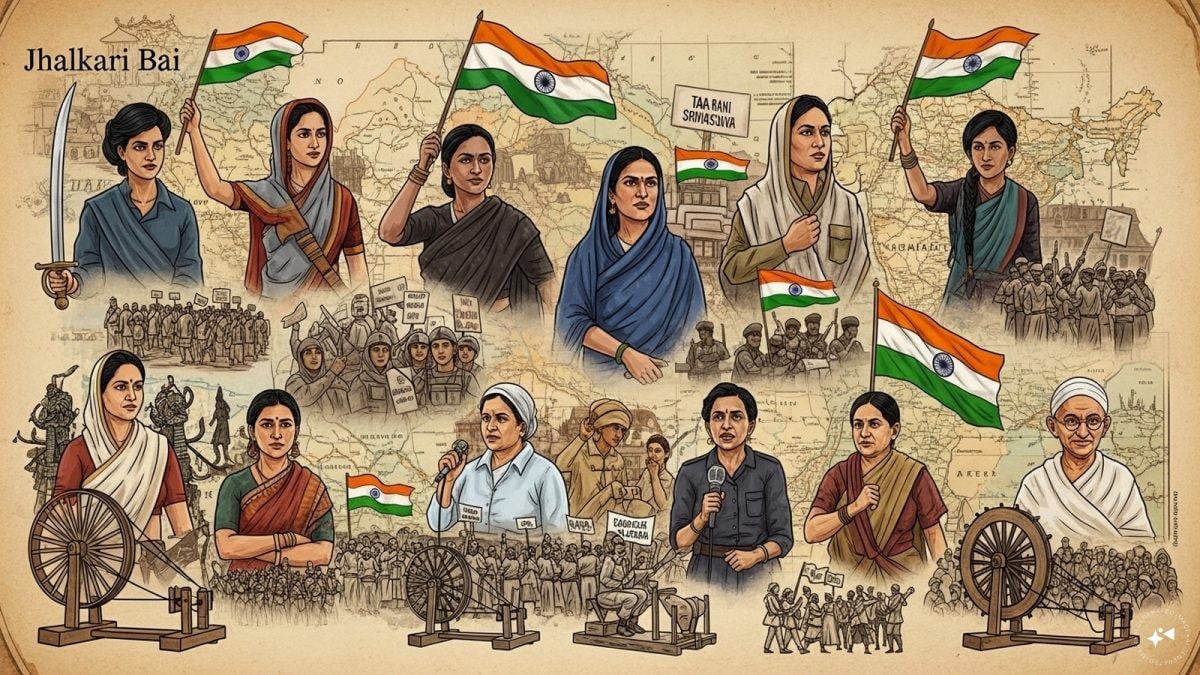

The history of India's independence is often told through the stories of prominent male figures, but the contributions of women were equally vital and inspiring. Countless women defied societal norms, faced immense challenges, and played pivotal roles in shaping the nation's destiny. While some, like Sarojini Naidu and Rani Lakshmi Bai, are well-known, many unsung heroines deserve recognition for their courage, determination, and sacrifice.
Many women participated in the freedom struggle from various backgrounds, religions, and regions, displaying remarkable resilience and patriotism. They mobilized the masses, led processions, organized protests, and supported underground movements, significantly contributing to the struggle and inspiring others to join. Some notable figures include Sarojini Naidu, known as the "Nightingale of India," who was a key figure in the Home Rule movement, Civil Disobedience, and Quit India movements. She became the first woman President of the Indian National Congress in 1925 and later served as the Governor of the United Provinces in independent India, advocating for women's rights and social reform. Vijaya Lakshmi Pandit, who broke diplomatic barriers on the global stage, inherited both privilege and responsibility from the politically charged Nehru household. Her defiance of British authority landed her in prison, and she later became the first woman to lead the UN General Assembly. Aruna Asaf Ali, famously remembered for hoisting the Indian National Congress flag during the Quit India Movement, played a crucial role in the freedom movement.
Beyond these well-known names, numerous lesser-known women made invaluable contributions. Begum Hazrat Mahal, also known as the Begum of Awadh, was one of the most pivotal figures in the 1857 Indian rebellion. She took charge of the affairs in the state of Awadh and seized control of Lucknow after her husband was exiled. Kittur Chennamma, the Rani of Kittur, led an armed revolt against the British in 1824, defying the doctrine of lapse. She is revered as a national hero in Karnataka, inspiring those who fight for freedom.
Other unsung heroines include Bhikaiji Cama, who hoisted the first version of the Indian flag at the International Socialist Congress in Stuttgart, Germany, in 1907. Kamala Nehru, wife of Jawaharlal Nehru, worked towards the cause of the Non-Cooperation Movement, training women to boycott foreign goods and services. Usha Mehta, known for broadcasting Congress Radio during the Quit India Movement, was imprisoned for her activities against the British Raj. Matangini Hazra, a revolutionary from Bengal, participated in the Quit India Movement and continued to hold the Indian flag even after being shot by police, earning the title "Gandhi Buri".
These women, and countless others, represent the strength, resilience, and determination of Indian women in the face of oppression. They challenged social norms, broke barriers, and paved the way for future generations. Their stories serve as a reminder that the fight for freedom was a collective effort, and their contributions must be recognized and celebrated. As India commemorates its independence, it is crucial to remember and honor these unsung heroines who played an integral role in shaping the nation's quest for sovereignty.